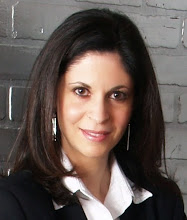As the damage from the gulf oil spill continues to become increasingly evident, we all become increasingly more aware of the need for CHANGE. The reason this particular lesson is so PAINFUL is because our use of oil is so prevalent as to be embedded, in one form or another, in nearly everything we do. We don't WANT to change. And so we long-ago passed up learning the "easy way" and then we passed up learning the "hard way." Now we're approaching learning this major (global) lesson the "HARDER" way.
Petroleum does so much more than fuel our vehicles. No matter the industry, its use is ingrained. In fact, we're so reliant upon oil and petroleum products that we'd be hard pressed to find anything tangible that doesn't depend, in some form or another, on its use. Wherever you find yourself, right in this moment, look around and see the truth: We each rely heavily on oil.
If we're all involved, that means BIG change is required. This is precisely why we may need to get SUPER UNCOMFORTABLE before we finally surrender to the inevitable.
There is GOOD NEWS! Once we reach our collective "Tipping Point," change will not be as difficult as we now fear. How do I know? Because change rarely, if ever, is as painful as we fear at its onset. Do you doubt this? Think of all the times we've feared the worst. Consider history. Remember SARS? Anthrax? Surely you can think of five more examples in but a minute or two. In truth, we could go on for a very long time listing all our collective fears that never fully came to pass. We humans tend to rise to the occasion, and so does Mother Nature. Not overnight, perhaps, but often sooner and more fully than we project from our place of fear.
Have faith.
Here is a more gentle reminder that the measure of pain which precedes change is, more often than not, up to us. Consider the Duchess of York. I mention her not because she is anything less than whole and perfect, but simply because she and her painful need for change are current and publicly known. The media has labeled her "greedy," but that's a judgement. Let's remove judgement and find the lesson. When Sarah Ferguson made the choice to profit from her connection to the prince, she may or may not have been motivated by greed. She may have been motivated by perceived need. We don't know. Often, we feel we have needs when they are actually wants. Distinguishing between the two may be a first-grade lesson, but it's one that many of us don't master until well into adulthood. Whatever the case, Ms. Ferguson made the choice she did because she - at least in that moment - valued monetary gain over morals.
I'm guessing it's not the first time she's made such a choice. It does appear as if she took a pass on learning the easy way, and then passed up learning the hard way... and is now experiencing an opportunity to learn the HARDER way. On the world stage, no less. Again.
Morals over money. That's a lesson we all must learn. Surely the Duchess is not alone in her pain. In truth, she is whole and perfect at the center of her Being. As are we all. The only "change" she need make is to see past illusion.
Keep it kind.
All is well.

hi, Catherine. I think anticipating change is harder than doing it. But we are always tempted to go back to the old ways, the easy ways. Until, as you have said, the new ways become habit. Think of recycling. Now we do it without much thought and it seems wrong not to recycle our cans, newspapers, and plastic bottles.
ReplyDeleteI feel angry on Sarah Ferguson's behalf, because she was set up by the media. They played on her weaknesses so they would have a good story. It seemed like an evil thing to do to her.